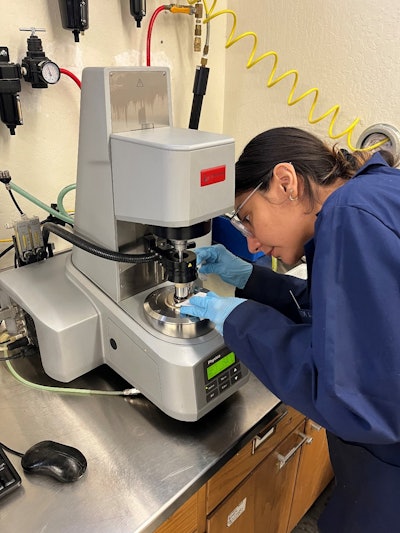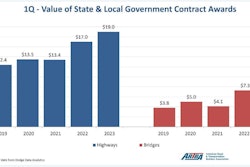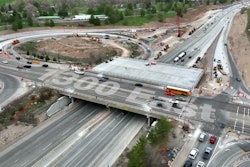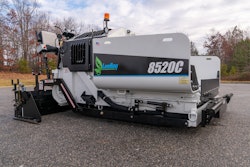
A 500-foot-long stretch of highway in California has become a testing ground for another innovative use of recycled plastic in asphalt pavement. And so far, it’s withstood heavy tractor-trailer traffic and flooding.
In October, Granite Construction paved a section on Highway 99 in Elk Grove near Sacramento using melted plastic in the asphalt’s binder blend from used printer toner cartridges. Granite partnered with the University of Nevada, Reno, on the “modified toner polymer,” or MTP.
“We did an overlay for a Caltrans project on Highway 99, replacing their conventional mix with 10% plastic by weight of the binder,” said Edgard Hitti, national asphalt manager for Granite Construction.
Estimates of toner powder and cartridges that end up in U.S. landfills range from 9,000 to over 25,000 tons a year. UNR notes that because they are typically classified as electronic waste, they are difficult to recycle. On the Highway 99 project, the university estimates that enough waste toner cartridges were recycled to fill 450 large wheeled residential curbside recycling bins. Using the polymer could reduce carbon-dioxide emissions in liquid asphalt by 5% and divert 200 pounds of plastic from landfills for every ton of asphalt produced, according to UNR.
The plastic from the toner cartridges also performed better as a binder than other plastics, said Elie Hajj, professor of civil and environmental engineering and associate director of UNR’s Western Regional Superpave Center.
“Plastics are not all the same, so with toner cartridges, it’s a consistent product – uniform and homogenous,” Hajj said. “Many plastics are very hard material and difficult to work with. Toner cartridges are nicer because it is a mixed softer post-consumer plastic that is better suited to binder modification because of its low melting point and better elasticity than conventional hard plastics.”
Granite and the Superpave Center approached Caltrans about the recycling project for Highway 99. The asphalt mix had performed well on a parking lot project the year before.
So far, the Highway 99 pavement has shown no signs of cracks or rutting, despite heavy truck traffic during high heat as well as freezing temperatures.
“The levee breach that flooded Highway 99 coincidentally happened at the low-carbon plastic section, and it held well with no damage,” Hitti said.
UNR lab results indicate the MTP asphalt binders have increased stiffness and viscosity, and the mixture can be used in any paving project, from highways to patch jobs.
More research and experiments on mixtures are underway at UNR’s Superpave Center, and it is preparing a study for publication, Hajj said.











